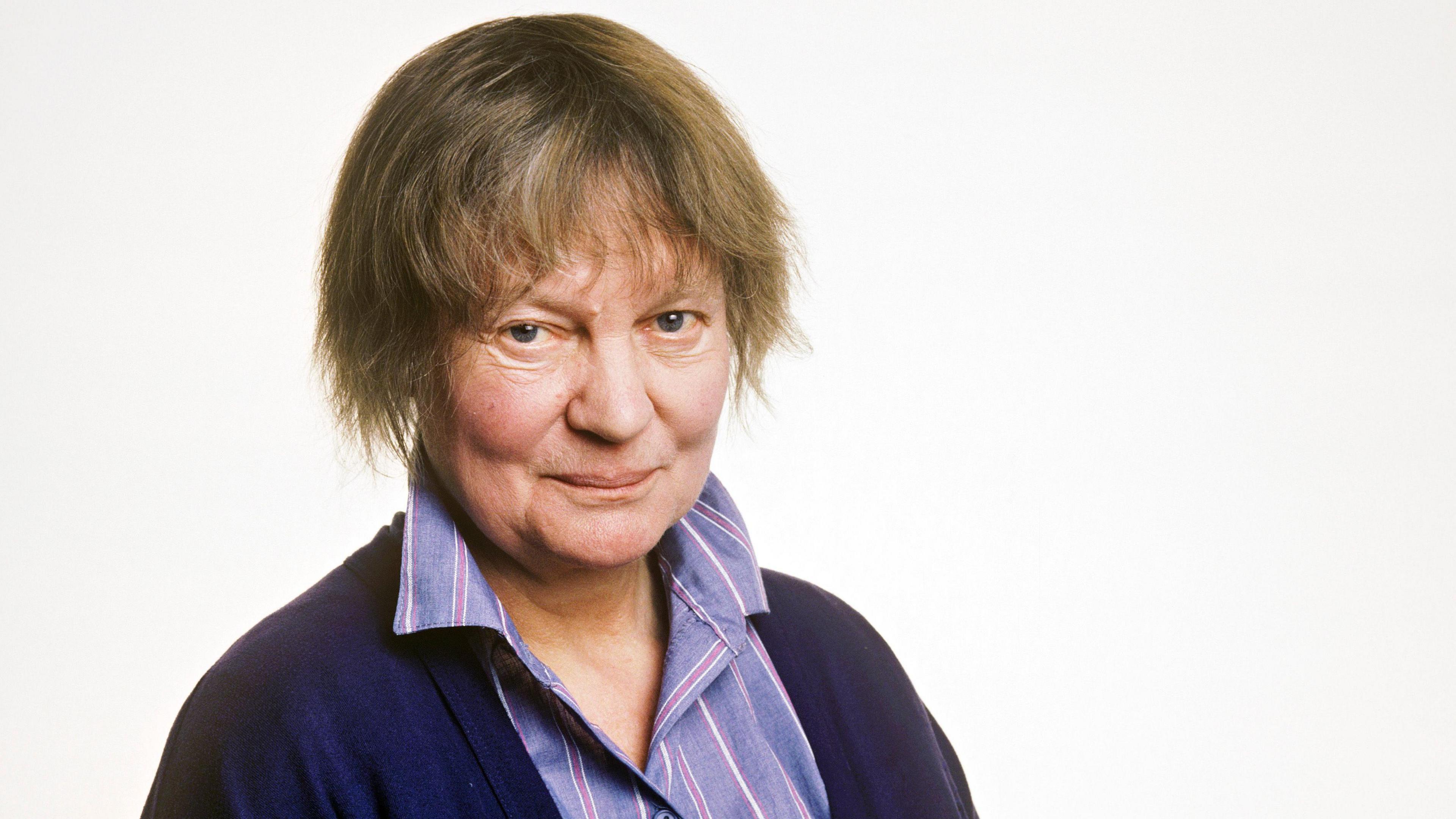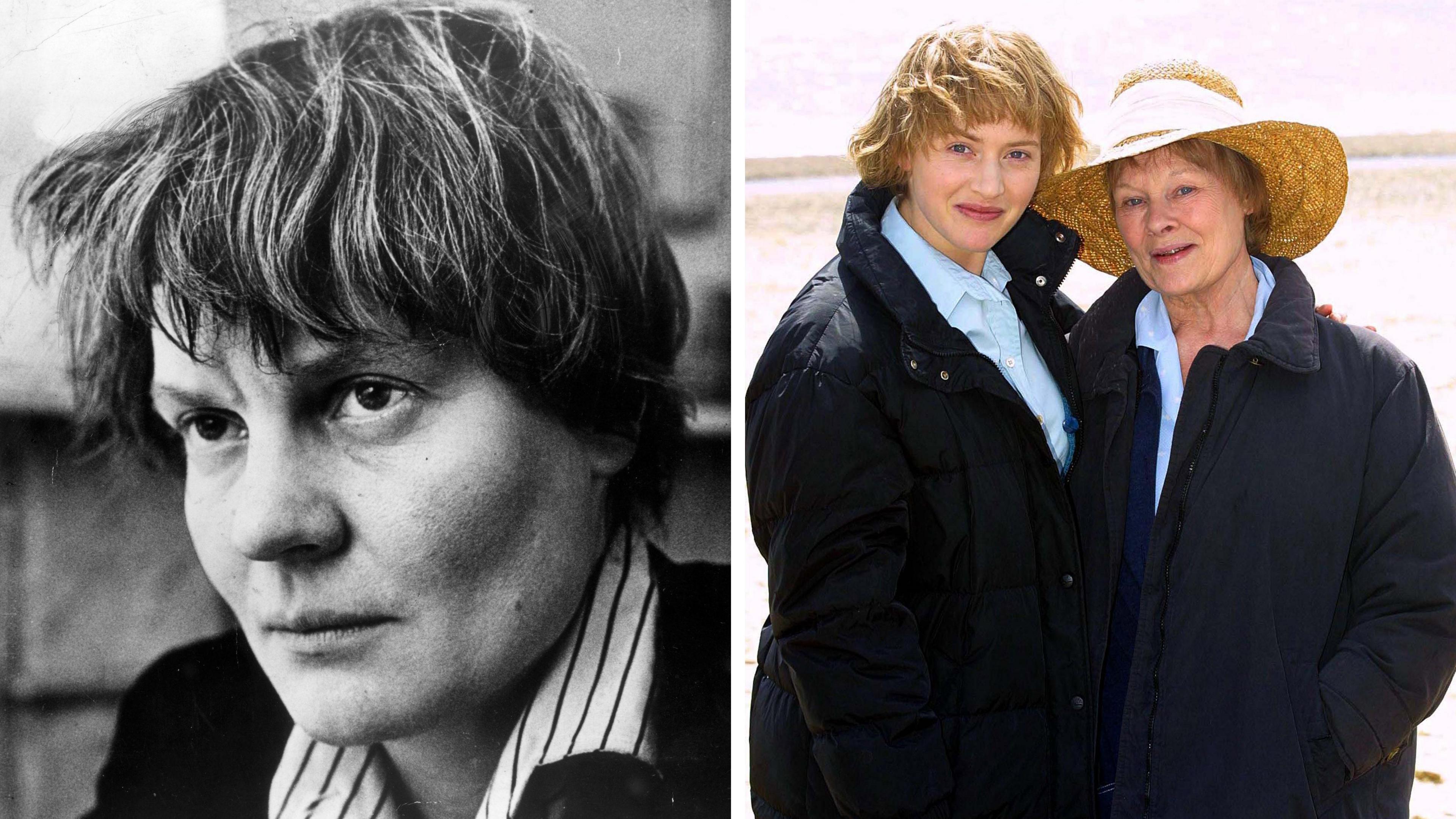Why 2024 is the year to rediscover Iris Murdoch

- Published
Dame Iris Murdoch was a novelist, philosopher, playwright and Oxford academic.
Her books explored morality, love and human relationships and won widespread acclaim, as well as the Whitbread Prize for The Sacred and Profane Love Machine, and the Booker Prize for The Sea, The Sea.
A quarter of a century after her death, a university professor who has studied her life and work, said it is time to "reflect" on the issues that were important to the Irish-British author.
Gary Browning, professor in political thought at Oxford Brookes University, said that even in the 1950s and 1960s, the author had "insight" on the topics of today, including human rights and acceptance of sexuality.
Professor Browning said he was "excited" to write a book exploring her political views.
He said that while her literary work is still widely appreciated, her politics "tends to be neglected", which served as "a big motivation for writing the book".
"Sexuality, the environment, equality, migration - all of those are very important aspects of politics
"Some of the literary critics have said that she is not really engaged with the public, but she is much more about the personal and the individual.
"In fact, politics was extremely important to her."

The life of Dame Iris was depicted in the 2001 Oscar-winning biographical drama Iris, starring Dame Judy Dench and Kate Winslet
Dame Iris died at a nursing home in Oxford in 1999.
This year also marks the 70th anniversary of the publication of her first novel, Under the Net.
But her political thinking proved "ahead of her time" as she explored topics related to the modern world.
Prof Browning said that while Under the Net was a "fun novel", it was also about "what does the Labour Party's stand for in today's world".
"The lead character who... does not adhere to any traditional values, wants to be a socialist.
"He wants to support left wing politics, but wonders what it is.
"That was in 1954 and there are a lot of people on the left thinking that today."

Prof Browning said that politics was "extremely important" to Dame Iris
Dr Miles Leeson, director of the Iris Murdoch Research Centre, said the author's political views also changed "substantially" over the course of her lifetime.
He said that she had remained "a leading figure in the communist party" in Oxford and later in London, although "the horrors of the gulags" coming out of Russia had put her off communism.
"She's certainly a figure that is reacting to particular political causes - the necessity for the development of women's education, the campaign for Nuclear Disarmament, the cause of the legalisation of homosexuality."
But in the 1970, she became dissatisfied with the Labour Party and she began to move to the right.
"And that's quite a significant move for her, particularly as an Irish woman living in Britain," Dr Leeson said.
"She had a lot of thoughts about the Troubles and independence, and about European values as well.
"She doesn't stay in one place, she's always thinking about where her allegiances lie.
"Her journey demarcates where British political life was moving in that 30-40-year period."
Despite having romantic and sexual relationships with men and women throughout her life, she was married to fellow academic John Bayley for 43 years.
In a 1994 interview, Dame Iris said that "above all else", he was the most important thing in her life and that to have had a happy marriage "is a very good thing".
Bayley wrote a book on Iris's fight against Alzheimer's which was turned into a 2001 Oscar-winning biographical drama, starring Dame Judy Dench and Kate Winslet.
Prof Browning said that Dame Iris had been "concerned" about the enabling of different sexualities.
Her essay The Moral Decision about Homosexuality calls for reform of the law in 1964.
"Her novel The Bell is considered a very moving focus upon tortured repressed homosexuals - I think that has meaning for us today.
"She herself was bisexual and there were bisexual people in her novels when it was not accepted generally."
He said Dame Iris "wouldn't be surprised at the politics of today".
"She was very concerned that all members of the community should be protected, should be valued.
"This comes through in her novels where there is a big focus upon migrants and the difficulties that they experience in coming to an alien society.
"She also, at the very end of her life, had a strong interest in environmental laws," he added.
"That's in the 1990s - she thought there was a real danger that the planet might sink, might go down and so she urged very much for that."
Dr Leeson said Dame Iris's novels were "ahead of their time in their thinking" and the challenges they explored.
"I think particularly her novels are even more relevant today than they were when they were published."
Get in touch
Do you have a story BBC Oxfordshire should cover?
You can follow BBC Oxfordshire on Facebook, external, X (Twitter), external, or Instagram, external.